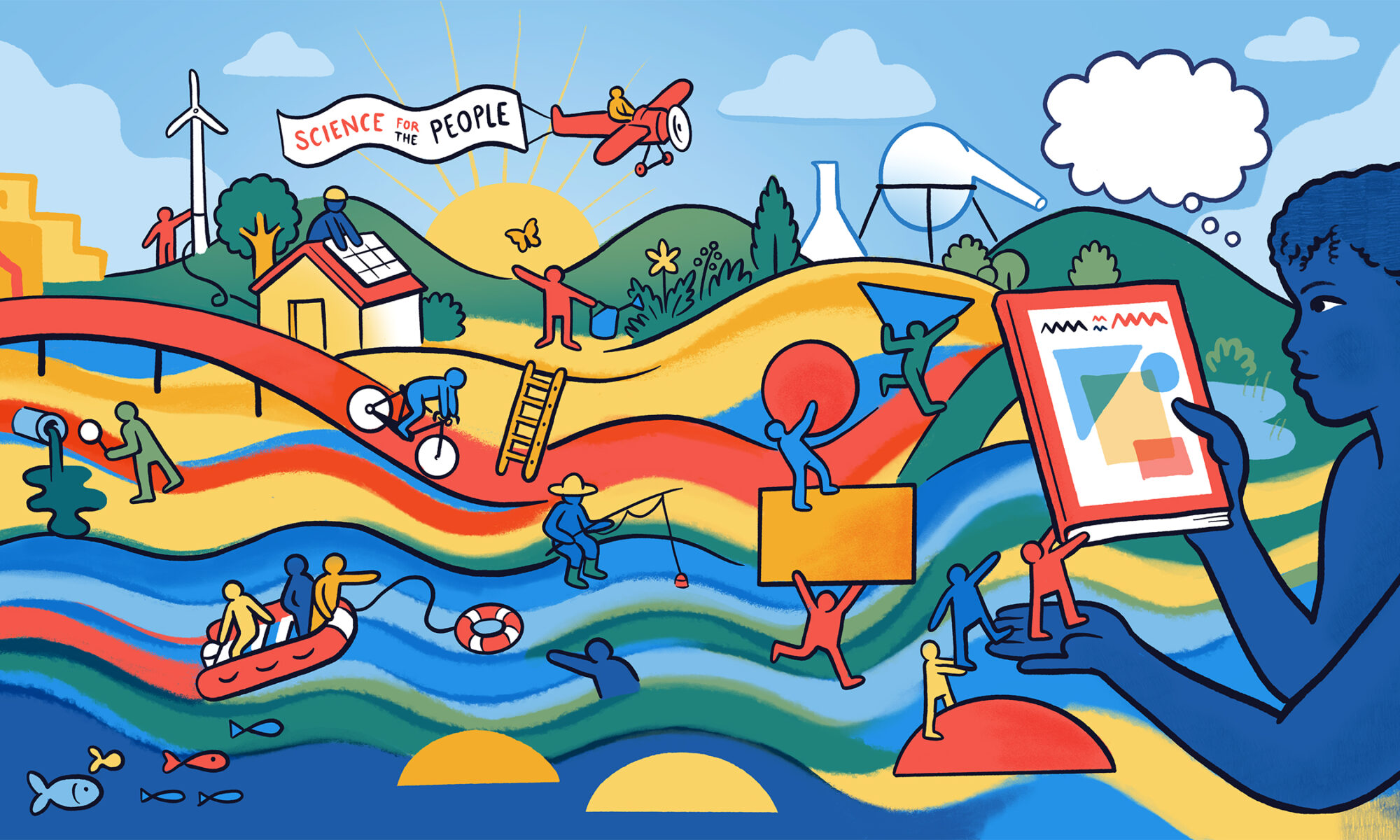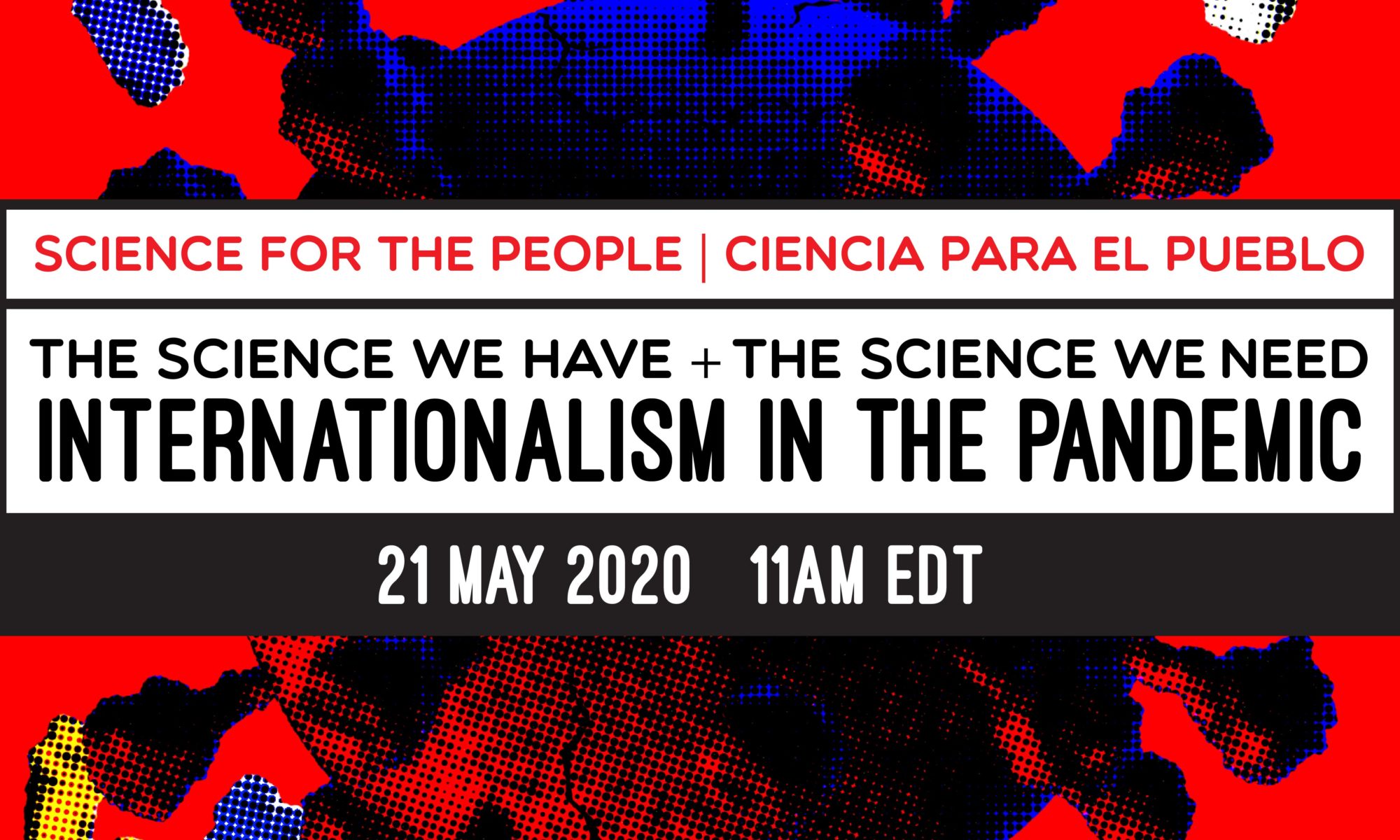On Thursday, May 21st, we will be co-hosting a webinar on internationalism in the pandemic with our compañerxs from Ciencia para el Pueblo. Far from a secondary issue, internationalism is the reason Science for the People was born. Back then, scientists organized against the use of their labor for oppressive ends during the Vietnam War.
Today, Covid19 is magnifiying structural violences and inequalities across borders. It is urgent that we reflect on radical science history, international struggle, and avenues for solidarity. “The Science We Have + The Science We Need: Internationalism in the Pandemic” aims to do just that.
REGISTER FOR THE WEBINAR

THE WEBINAR
The webinar will be covering the following three issues:
(1) The Science We Have: an analysis of the dominant structures, institutions, and paradigms that contribute to austerity and the misuse of science for oppressive ends, and how the resulting power dynamics limit a humane and transformative response to the ongoing crisis in the context of Covid19.
(2) The Science We Need: rooted in the specificities of regional contexts, possible avenues towards the transformation of “science as a whole” in the interests of justice and human need. How might have a transformed terrain of science rooted in justice have responded to a pandemic like Covid19?
(3) On-the-Ground Organizing: How do we transition from the science we have to the one we need? What can we learn from historic and ongoing struggles in the sciences and across borders? What is the role of knowledge production, application, and distribution in this process? Prior to and during Covid19, what on-the-ground political activities were and are taking place across local and regional contexts?
Thursday, May 21st 2020
11 a.m. EDT
REGISTER HERE FOR THE WEBINAR
The webinar will be livestreamed on: Zoom, Youtube, and Facebook

SPEAKERS
- NNIMMO BASSEY is the director of the Nigeria-based ecological think-tank, Health of Mother Earth Foundation (HOMEF) and member steering committee of Oilwatch International. He was a co-recipient of the 2010 Right Livelihood Award also known as the “Alternative Nobel Prize.” His books include To Cook a Continent – Destructive Extraction and the Climate Crisis in Africa and Oil Politics – Echoes of Ecological War.
- DR. LUIS ALBERTO MONTERO CABRERA is a professor in the Department of Chemistry, chairing the branch of Natural Sciences at the Academy of Sciences of Cuba. He also chairs the Scientific Council of the University of Havana.
- SHANTY ACOSTA SINENCIO is an independent biologist and chemist from the Faculty of Science at UNAM, Mexico, and a member of Ciencia para el Pueblo- Mexico.
- ZHUN XU is an assistant professor at the Department of Economics at Howard University, having previously taught at Renmin University in Beijing. His research areas include Political Economy (health, food and development in general), Chinese Economy, and Economic History. He is the author of From Commune to Capitalism: How China’s Peasants Lost Collective Farming and Gained Urban Poverty.
- DR. SIGRID SCHMALZER is a professor of History at the University of Massachusetts Amherst, with a Ph.D. in Modern Chinese History and Science Studies from UC San Diego. She is a co-founder of the revitalized Science for the People and the co-editor of Science for the People: Documents from America’s Movement of Radical Scientists.
- SAMAN SEPEHRI is an analytical chemist at Northwestern University and a long-time activist of Iranian descent. He has written on Middle East politics, the internal dynamic of Iran, and questions of world energy and the geopolitics of oil. He is currently a member of Chicago DSA.
- LAURA PEÑARANDA (Moderator) is a Colombian labor organizer with Trade Unions for Energy Democracy (TUED). She is a member of the International Committee of DSA, Science for the People, and Colombia Humana.
Art by MYLES MARSHALL


